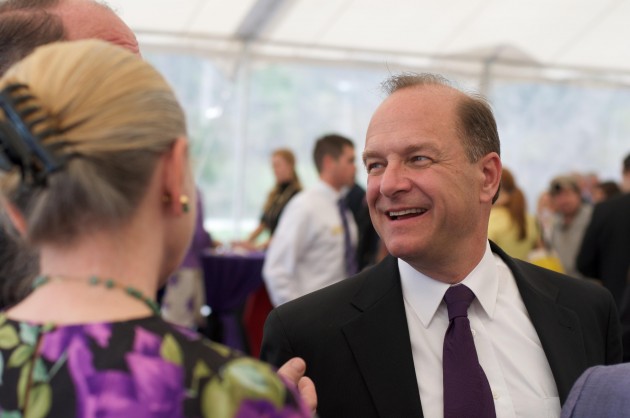
Western Carolina University is conducting a salary study to examine whether or not the university is in compliance with federal regulations concerning gender equity and how WCU compares to its peer universities.
Henry Wong and his staff at the Office of Equal Opportunity and Diversity Programs along with the WCU Legal Office are undertaking the technical side of the study.
“My office … has the lead role to conduct the study as we will follow the Department of Labor guidelines for determining salary equity under the Equal Opportunity Commission,” said Wong. “I am hopeful that there are no significant differences in pay between male and female employees. However, I will not know that until I start analyzing the data and conduct interviews. My role is to complete the study and present the results to the Chancellor and Executive Council.”
The study, which will take an estimated two years to complete, was Chancellor David Belcher’s idea. He noticed that it had been a significant amount of time since the last study in 1996.
“It’s always good to benchmark,” said Belcher, “how we stack up in salary issues against other institutions.
“It’s important for our faculty,” he continued. “They’re the backbone of our university. It’s important to take care of them. We have a responsibility to take care of our people.”
For some time, there have been no raises in salary due to the budget crisis. Belcher explained that the study will provide information in how to handle salary increases in preparation for when there is money again. He continued to comment that the study will “set ourselves up to make wise distributions and decisions” in the future.
While Wong and his team are making sure federal regulations are met, Belcher speculated that the faculty will be the driving force if issues or concerns arise from the results of the study, such as gender inequalities.
Catherine Carter, associate professor in the English department and director of English education, made speculative comments about her guess to the outcome of the survey.
“While there are probably pockets of greater equality and lesser equality, what I’d expect a careful study to find is that in general, women at WCU and in the UNC system earn less than men with comparable qualifications, years of service, academic ranks and expertise,” Carter said. “Because that’s what was suggested by the last data I could find on salaries of male versus female WCU employees from the 2005 Factbook, and because that is normal in the U.S.
“In general, and when you control for things like qualifications, years of service and so on, American women make about 76 cents on American men’s dollar,” Carter continued. “It would be fairly surprising for a single institution to be a whole lot different from this norm, unless or until it makes very thoughtful efforts to be.”
Gael Graham, professor in the department of history, said that salary inequalities could be hidden or “disguised.”
“Some of this disguises itself as disciplinary. Faculty in some disciplines are paid more on the grounds that they have to be lured away from the private sector with higher salaries,” said Graham. “Often these disciplines show gender imbalances, more men than women in them. Other salary inequalities hide under unequal promotion policies. I suspect but don’t know for a fact, that WCU and other UNC institutions have more male than female full professors, which would impact salary equity.”
Whether or not Western Carolina has an inequality in salaries of different gender or race will not be made known until after the study is published. However, Belcher would not be surprised if there are differences due to compression and inversions instead of inequality.
Belcher explained that the going rate to hire someone in 2012 is higher than in 2008, for example. Because of this, a potential faculty member is offered the going rate, which may be the same salary that a WCU professor of five years is currently making. Even though the professor has worked at the university for several years, the new hire would make the same amount of money because the going rate is higher in 2012 than it was in 2008. If Belcher tried to offer a lower amount, he explained, he would not be able to acquire any new faculty members.
Whatever the outcome, the salary study will benefit Western Carolina in a number of ways, including exposing possible inequality and comparing the university to its peer institutions.
“It doesn’t take a conscious effort to make inequity of any kind happen,” said Carter. “It takes conscious effort to make it stop. And, WCU’s salary equity study is, I think, part of a conscious effort to recognize and address inequity of all kinds, and I am very, very happy about that. It shows what you might call good faith, and that’s very important.
“No one expects any one institution to be perfect or to wipe out centuries of inequity overnight,” continued Carter. “What I do expect and appreciate is an ongoing effort to recognize and address inequity when it happens.”






